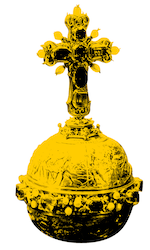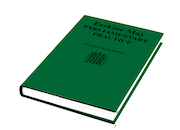
The Crown
The line of monarchs traces back to jostling Saxon kingdoms, before England was a thing, and a crowned head has sat at the constitution’s apex since, except when it was briefly knocked off its perch in the 17th century. Royal Assent for new laws has not been refused since 1708. By contrast, royal prerogatives to, for example, prorogue parliament and declare war retain bite. Though mostly discharged by ministers in the crown’s name, the ancient source of the power can have odd consequences. Repealing the Fixed-term Parliaments Act, for example, may not neatly restore the monarch’s traditional prerogative to call an election.

“Time immemorial” and the Common Law
The origins of English Common Law may be lost in the sands of time, but since a 1275 statute, England’s legal memory has been precisely defined as beginning on 6th July 1189, the start of Richard the Lionheart’s reign. Lawyers refer to anything earlier as “time immemorial” or “time out of mind.” Case law evolves, so this legal year zero doesn’t often crop up today. But in theory at least it could still do so—one way to secure a right of way, for example, might still be to argue it had applied “since time immemorial.”

Magna Carta
Magna Carta is more celebrated than understood. Signed by King John in 1215, it was soon annulled, before being revised and reissued several times. It registered the principle that the king had to broker with others, albeit in ways that now baffle. But one clause about the City of London’s status remains in force. Another frames the ideal we now call due process and arguably jury trial: “No Freeman shall be taken or imprisoned… or any other wise destroyed… except by lawful judgment of his Peers.”

Doing God
The Tudor “Acts of Supremacy” (Henry VIII’s in 1534 and then Elizabeth’s in 1558-9) started with Henry’s lusty dash for a divorce, but they became fundamental. The monarch was made “supreme head” of the Church, subjecting the Church of England to temporal authority. The established church was explicitly fitted under the auspices of a nation state. To this day you can see royal coats of arms in the cathedrals of Anglican bishops, 26 of whom get automatic seats in the Lords. Whether he likes it or not, King Charles will be defender of one faith, not all.

Erskine May
Parliament’s privilege to run its own business was secured in 1688-9, and many of its protocols—including the one the speaker invoked in March—were established before then. But it took an obsessive clerk, Thomas Erskine May, to bundle them all into a book in 1844. Now in its 24th edition, any citizen wanting to get their hands on his “bible of procedure” has to stump up £440. But perhaps that’s a snip. At times during the Brexit process Erskine May has been our only protection from government whim.

Hereditary peers
Take your pick on a start date on aristocracy—some trace earldoms back to a setting of county lines in 1014—but it was a long time ago. And since the Middle Ages, it has enjoyed a special place in parliament. Hereditary lawmakers survived the People’s Budget and the arrival of life peers in the 1950s. Then, when Tony Blair tried to give them the boot in 1999, a bloc of 92 bluebloods earned what has become a perpetual reprieve. When one dies, the world’s strangest elections are triggered to fill vacancies: the number of candidates has sometimes exceeded the eligible electorate. The voting rules vary by party, but only toffs are eligible to stand for these seats on the red benches—and win a chance to write Britain’s laws.
Now read: Could a new codified constitution fix Britain's broken democracy?












